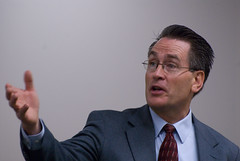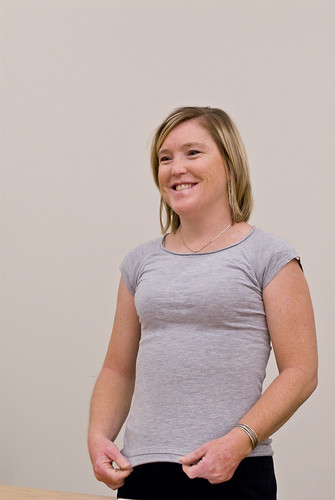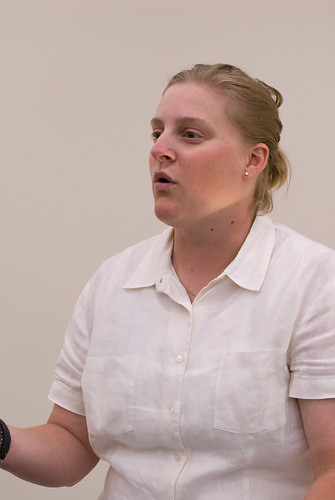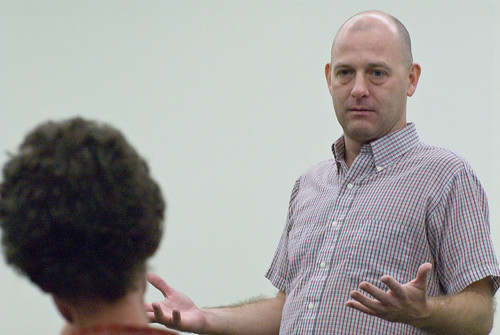
C. Arden Pope III
Originally uploaded by Center for the Study of Ethics at UVU.
Dr. Pope speaking at the Public Policy and Ethics conference, "Do you have a right to clean air?".
Dedicated to the mission of inciting dialogue about issues of Ethics, UVU's Center for the Study of Ethics regularly sponsors academic speakers on the subject of ethics. From business ethics to the philosophy of ethics, from community action to world involvement, the ongoing conversation seeks to explore ethics.

Dr. Pope speaking at the Public Policy and Ethics conference, "Do you have a right to clean air?".

Ken Reagle opened Tuesday's proceedings by recounting his Vietnam story and reading selected poetry from his book.

Sheldon Smith deliviered a presentation today that investigates the issues regarding the government assistance in cases of adoption and infertility treatments. His paper runs through the very large number of controversies relative to adoption and helping other sorts of childless couples get children. He asks whether it is ethical for governments to fund such efforts partially because of the large number of controversies. He admits to raising more questions than he answers. He says that how we answer this issue depends upon many personal factors, including religious biases, political biases and so forth. He admits that despite the controversies that exist surrounding the issue there are other cases, such as war efforts, where we fund things through government programs despite the presence of myriad complicating factors. His desire in this paper was to expound the complications, not solve them.



Would a response, devoid of belief, to nothing but the other as the other appears, begin to approach a fundamental priority of what is called “ethical” action, over theory, theme, principle, category—a fundamental asymmetry that demonstrates itself in what people actually, thoughtlessly, do?A wonderfully delicious lecture.